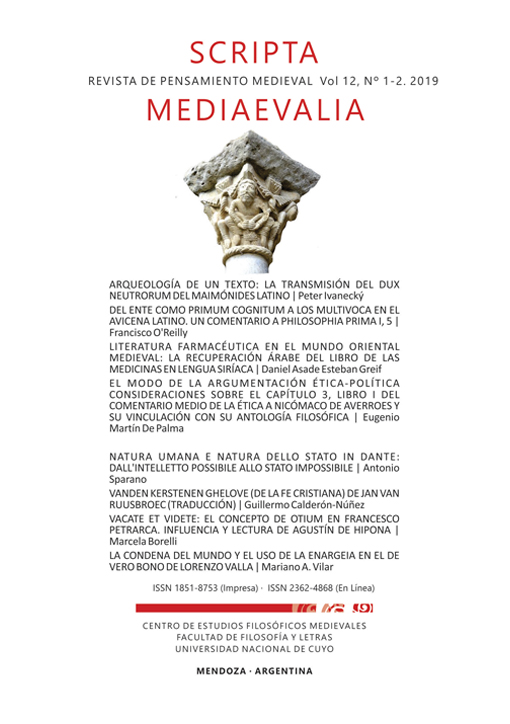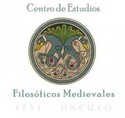Ethical-political argumentation Considerations on Chapter 3, Book I of Averroes’s Middle Commentary on the Nicomachean Ethics and its connection with his philosophical anthology
Keywords:
Ethics, argumentation, young people as disciples, Islam, philosophical anthologyAbstract
The traces left by the Greek ethical-political philosophy and, in particular, by the Nicomachean Ethics in the Arab world have been reflected in many of its studies and its thinkers. For this reason, some considerations about this science’s mode of argumentation in the context of the analysis of Averroes’ analysis Middle Commentary on Nicomachean Ethics I. 3 and its connection with its philosophical anthology will allow us to considerer that the link between ethics and politics are two aspects of the same reality, concerning man in his individual and social dimensions. Both are inseparable from Islamic society at that time, which began in the natural connection between religion and community, for Muḥammad was entrusted by God to institute "the best community that has arisen for men." (Quran 3.110).






































